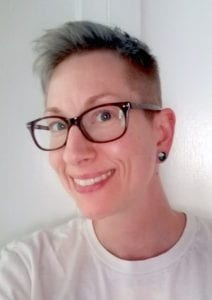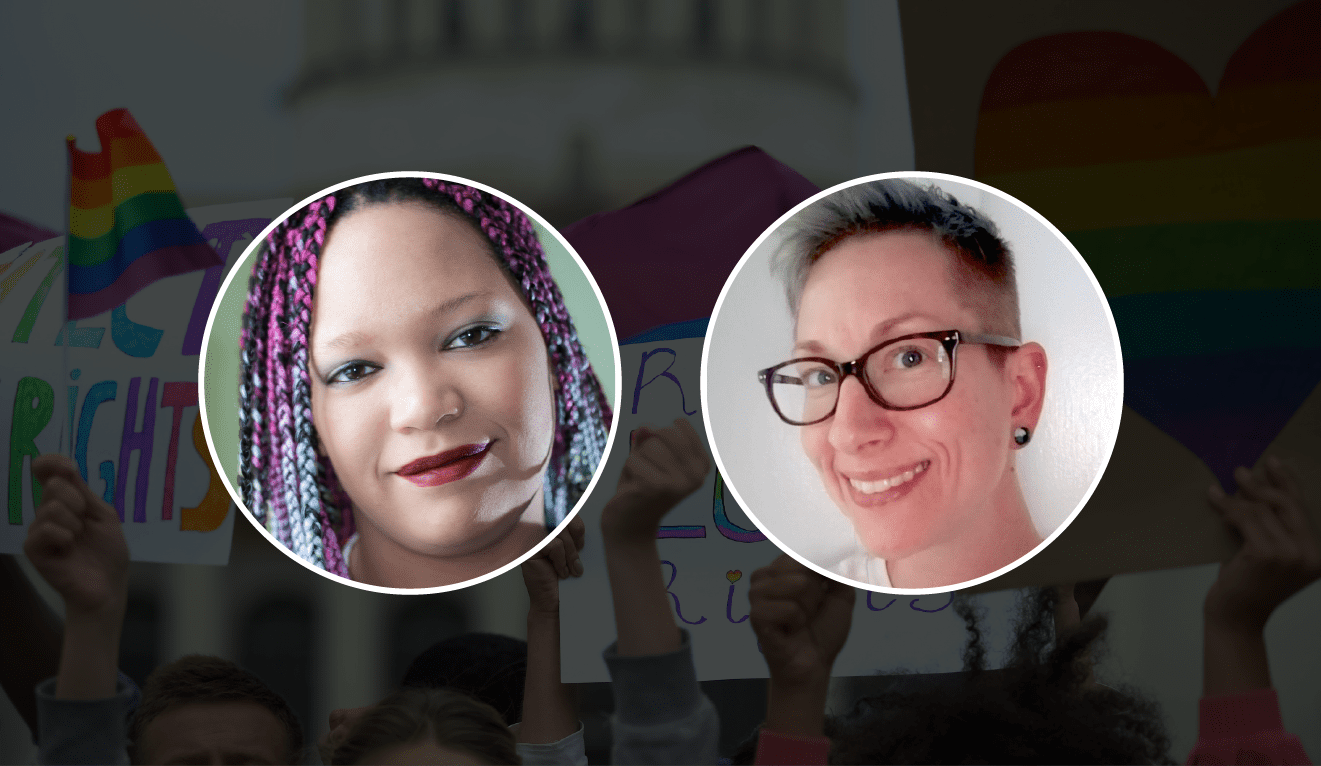Study after study shows that members of the lesbian, gay, bisexual, transgender, and queer (LGBTQ) community are more likely to experience potentially traumatizing events and discrimination throughout their lifetime. Although a person’s sexual orientation or gender identity may not be the source of distress, people who identify as lesbian, gay, bisexual, transgender, queer, questioning, asexual, or any other orientation or gender identity may find that the social stigma of living as a minority is difficult—as a child or as an adult.
According to a 2007 survey, students who identified as lesbian, gay, bisexual, or transgender were almost 10 times as likely to have experienced bullying and victimization at school and more than twice as likely to have considered suicide as their heterosexual, cisgender classmates within the previous year.
Without intervention, childhood trauma doesn’t go away when you grow up—no matter what causes it—and as an adult, many people seek treatment through therapy. But are therapists adequately prepared? Trust is key for all patient-therapist relationships, but for LGBTQ+ people, that trust can be even more difficult to establish.
As a leader in inclusive therapies and LGBTQIA+ practitioners, The Chicago School of Professional Psychology has many faculty and alum who are experts working with this population. We sat down with two helping professionals to discuss therapy and the LGBTQIA+ community for both the young and old, the importance of using correct pronouns, and how therapists can better prepare to treat patients from all walks of life.
***

August Stockwell, Ph.D., BCBA-D, is the executive director at Upswing Advocates, a nonprofit organization that provides education and research opportunities that focus on the LGBTQ2IA community. Over the past 13 years, Dr. Stockwell’s research has focused polyamory, communication in relationships, gender, sexual behavior, mindfulness, and effective skill-building strategies. They have a vision of using precise measurement and an individualized approach to connect people to affirming, accessible interventions that create meaningful change. Dr. Stockwell is also the associate director of research in the Applied Behavior Analysis Department at The Chicago School of Professional Psychology.
 Cassandra Walker, LCSW is a radical social worker and psychotherapist who specializes in the intersections of trauma, identity, and mental wellness. They use NARM and integrative treatments through anti-oppressive and anti-racist lenses. They have worked in research, community mental health, and private practice. They are currently the host of the Woke Mental Wellness Podcast which seeks to increase awareness and understanding of Black Queer issues and help Black Queer communities navigate their wellness journeys. They are also the owner of Intersections Center for Complex Healing which they hope will one day be a holistic healing and community center.
Cassandra Walker, LCSW is a radical social worker and psychotherapist who specializes in the intersections of trauma, identity, and mental wellness. They use NARM and integrative treatments through anti-oppressive and anti-racist lenses. They have worked in research, community mental health, and private practice. They are currently the host of the Woke Mental Wellness Podcast which seeks to increase awareness and understanding of Black Queer issues and help Black Queer communities navigate their wellness journeys. They are also the owner of Intersections Center for Complex Healing which they hope will one day be a holistic healing and community center.
***
What drew you to work in this community?
August Stockwell, Ph.D., BCBA-D: I was drawn to work with the LGBTQ2IA+ community because I am a member of that community myself and have seen what a powerful impact affirming mental health services can have for folks. There are so many professionals who hold the value of being accepting and affirming providers, but often they lack the skills or resources needed to put it into practice in concrete ways. I’ve found it very rewarding to be able to support providers in building their competencies in this area.
Cultural messages related to gender and sexuality impact everyone, not only LGBTQ2IA+ people, so these are worthwhile conversations to be having across the board as we work to create a world that makes room for and embraces a variety of identities, experiences, needs, and values.
Cassandra Walker, LCSW: I am a Black, Non-Binary person, so I wanted work with my community to help address issues that prevent people from seeking and receiving therapy when they want to. I wanted to help people like me to have more places to go and heal with people who share identity with them. I know firsthand how minority stress compounds issues and how hard it can be to address harm caused by the dominant groups when sitting with a well-meaning member of those groups. I wanted to be part of the discussion of how to treat this community because unless you are incorporating and listening to the people you are trying to help, you will continue to miss things and potentially perpetuate the harm.
Opening doors to collaboration and discussion while deeply and honestly listening is a good first step in prioritizing diversity and inclusion, but there is still a long way to go.
Are there certain experiences or ways that you find best for establishing trust with patients in general—is there a difference in doing this with patients who identify as LGBTQIA+?
Mx. Walker: Generally speaking, being honest and listening are the best rapport builders I’ve found. I think that this is even more critical with LGBTQIA+ clients as one unique experience many clients have had is is that people in their life will use faux niceness that seeks to lightly soften rejection and hateful views while still holding them.
Dr. Stockwell: Building trust is hugely important, especially given the hurtful and discriminatory encounters with professionals LGBTQ2IA+ clients may have had before coming to work with you as a therapy client. A therapist can help to build trust by creating a welcoming environment that includes LGBTQ2IA+ people represented in marketing materials, use of gender-inclusive language and the client’s correct gender pronouns, wheelchair-accessible gender neutral bathrooms, and established systems that ensure that the client’s chosen name is used rather than their legal name everywhere possible.
Trust can also be strengthened by following the client’s lead in what they see as most crucial to focus on in therapy; if it’s not about gender or sexuality, we should not make it about gender or sexuality.
We should let the client be the expert on their experience and keep in mind that each person’s experiences will be impacted by their intersecting identities. Finally, it is important to be checking in with clients regularly to ask how we can make them feel more seen and heard. If an LGBTQ2IA+ client gives feedback on how the therapy process is going and provides ways for you to improve, it’s crucial to own your previous behavior, validate your client’s experience, and incorporate their feedback. (Credit to my colleague Worner Leland for many of these points found in the blog posts here and here.)
What about other issues that LGBTQIA+ people face that others don’t—issues that may lead them to seek treatment?
Dr. Stockwell: One example of an issue that LGBTQ2IA+ people may encounter that others don’t are rejection from their family and spiritual community. Currently, only 18 U.S. states ban the use of conversion therapy with minors, and so some young people are still pushed into conversion therapy or “pray the gay away” religious programs. Based on this, LGBTQ2IA+ people may seek out therapy to process and heal from these family experiences and the resulting self-stigma.
Mx. Walker: Dr. Stockwell is spot on with the issues that they mentioned. I’d also like to add and build on the issue of being addressed incorrectly as another unique experience, especially for TGNC (transgender and gender non-conforming) individuals.
Not being able to use your name or pronouns or having them disrespected is a stressor and wound that people face daily.
Many victims of this type of discrimination will seek help for dealing with the stress, anxiety, depression, and relational issues that arise from having to deny your identity or being told that who you are is “wrong.” In therapy, this can start from intake paperwork and continue on. Many times there is no way to report the name and pronouns you use if they are not your legal name or otherwise normative. Thus from the start, you have misattunement, mistrust, and a new wound in the therapeutic relationship that can, and does, prevent people from actually getting the help they are seeking.
Dr. Stockwell: Also, under the LGBTQ2IA+ umbrella are asexual (ace) and aromantic (aro) identities. Asexual people (those who do not experience sexual attraction toward others) can experience social exclusion and ridicule, and asexuality can be pathologized rather than seen as an example of natural human variation. People who are aromantic (who don’t experience romantic attraction to others) may be incorrectly characterized as not wanting close relationships with others or as being incapable of intimacy. Unpacking stereotypes and misconceptions in therapy about what it means to be ace+aro can take time but can allow for a client’s values to be centered as they decide what social, romantic, and sexual interactions work best for them.
How does intersectionality play into an effective practice?
Mx. Walker: LGBTQIA+ people, especially those of color, frequently exist in unique intersections that put them at higher risk for both shock and complex traumas. While many other groups also have to live in a reality of consistent trauma, adding gender and sexuality produces unique challenges that bring people in and require special attention. We as clinicians need to ensure that we are still affirming and effective while also maintaining the client’s space to lead, explore, and heal. The ability to acknowledge factors or facets of situations through anti-oppressive and anti-racist lenses are also a helpful way to talk with people about how their identities and experiences might be intertwined. Anti-oppressive practice can also help people to acknowledge and work with minority stress while preventing shame and self-blame.
People of color who are under the umbrella have historically had increased risk of rejection and invalidation from their families, peers, and religious communities. There is something powerful in being able to see a provider who shares identity and community with you. Even now QTPOC have few to no options to have that. The interplay of racism and hetero- and homo-normativity are a distinctive challenge that QTPOC face that adds stress and also a barrier to treatment when there are so few QTPOC providers.
What progress have you seen in this field related to LGBTQ+ issues? And what developments do you think can still be made?
Mx. Walker: I’ve seen more use of informed consent and other less gatekeeping models for gender affirming care as well the de-pathologizing of different sexualities and genders. This progress is both exciting and promising. There has also been much more meaningful and respectful research on symptoms, treatment, and issue differences among LGBTQIA+ clients.
As we continue forward, I hope to see more formal and comprehensive training for work with TGNC communities. I hope that transphobia and queerphobia will be seen as just as unacceptable and punishable as other forms of bigotry that are damaging to clients, colleagues, and the field.
I believe that intersectionality as related to differences in symptom presentation and the prevalence and impact of various types of trauma are issues we still have a way to go with teaching and treating. This is particularly true since behavioral therapies may not be the best options for healing these deeper wounds.
Dr. Stockwell: I would like to echo everything Cassandra has mentioned in their response to this question. Also, I think there is a real opportunity for collaboration and resource sharing across helping professions, as so much of the work we do in the service of clients can become siloed and not effectively disseminated outside of our respective fields, or even small groups within our fields. This involves taking an approach of cultural humility and an openness to ways in which people in other fields may use different language to convey similar concepts rather than seeing our approach as the default best approach in all contexts.
Ready to begin your career in mental health and wellness through an online program? Choose the Chicago School of Professional Psychology to start your online journey today!
Our award-winning, digital magazine, {INSIGHT}, is your guide to the latest in health care, psychology, career development, and more! Check it out today.

